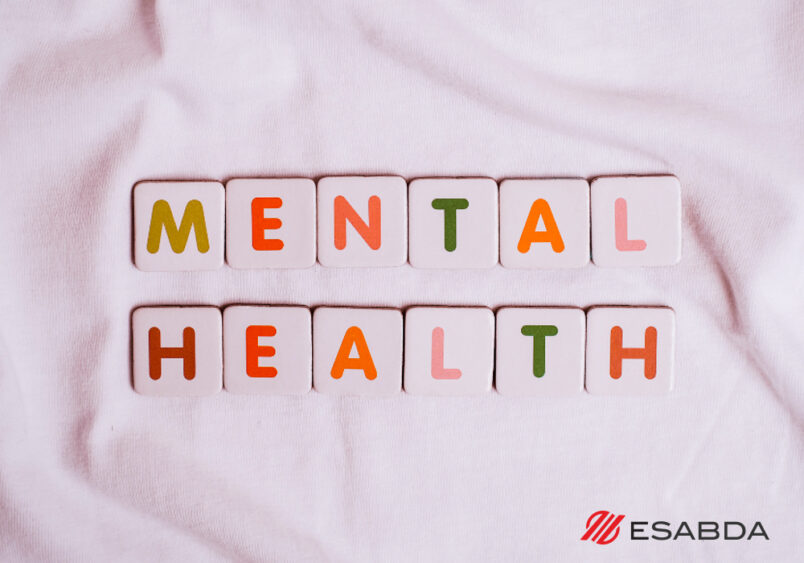By Kritima
Mental health entails the manner in which people act, feel, think, and behave, which has an impact on one’s relationships, physical health, daily life, and most significantly, one’s decisions. The issue of mental health didn’t really gain greater attention until COVID and rose to popularity after it. Due to this mental health problems are now a major health concern in the modern geopolitical environment. Currently, in Low and Middle-Income Countries (LMIC), four out of every five individuals with serious mental illness do not receive proper care. and Nepal is no different in this regard.
Situation and Status of Mental Health in Nepal
Being a mountainous, transcontinental developing nation, Nepal is a country with many diverse cultures and traditions, however, each of these civilizations shares the same concept when that comes to mental illness. Here, the word “mental health” is frequently used to refer to being insane and unfit for society or to the lack of mental disorders, or being possessed under the influence of a holy spirit or black magic.
In the world, one in every eight persons struggles with mental health. The epidemic has been attributed to the number, of 25 percent more people worldwide now report having anxiety or sadness. Similar statistics apply to Nepal, where approximately 2.2 million individuals between the ages of 16 and 40 struggle with mental health issues. Furthermore, according to a National Health Research Council report, 94% of persons who suffer from mental diseases never seek help from a therapist, psychologist, or psychiatrist.
In a recent survey conducted in Nepal from January 2019 to January 2020 throughout all seven provinces of Nepal, the prevalence of mental disorders was found to be 5.2% among 5888 adolescents whereas the predominance of current suicidal thoughts was found to be 3.9% among adolescents. Similarly, the prevalence of lifetime suicidal attempts was found to be 0.7%.
Although these days, due to greater exposure to the internet and a rising understanding of the value of mental health, many people speak about it, because the majority of the country’s population resides in rural areas, those who are experiencing mental illness are still reluctant to disclose it.
Issues related to mental health
The Nepali government has gradually strengthened its attention to mental health issues in recent years after realizing the necessity for it. The list of essential health services now includes mental health care services. But despite all of these efforts, what factors in Nepal are contributing to the growth of mental health issues?
- Cultural and social stigma- We cannot disregard Nepal’s cultural orientation when discussing the country. Even when talking about a sensitive subject like mental health, Nepalese culture gets in the way. The customs and traditions that the locals cling to have a significant impact on their attitudes and beliefs. Mental illness has been seen as distinct from physical sickness in Nepalese culture since the mind and body are seen as separate things. It is stigmatized and seen as a sign of losing one’s self-control, and having a “weak mind”, and is linked to past life sins, demonic possessions, and divine vengeance in many cultures. Due to this, individuals with mental illnesses are frequently ignored by society, and they and their family members are the focus of discrimination and prejudice to the point where they’re reluctant to seek out the necessary treatment. As a result, the majority of patients with mental health disorders are left to fend for themselves and battle the both disease and the stigmatization on their own, which drives some of them to commit suicide.
- Lack of access to professionals and facilities- To address mental health issues, Nepal lacks sufficient professionals. Though the constitution of Nepal recognizes the right to health as a fundamental human right, the Nepali Health Care System disregards this component of patient care based on the system’s healthcare definition and its omission of psychological care. Despite the fact that the Nepali government designated mental health as a key priority in its 2014–20 implementation plan for the prevention and control of non–communicable diseases, execution of this strategy has stalled due to political unrest and underfunding. The reality of the ground is largely unchanged. Most people don’t have any kind of assistance even near where they live, and if there was, many people wouldn’t go because of the potential stigma.
- General counseling services are offered by paraprofessional counselors who have received training and are employed by NGOs; however, these services are frequently restricted to certain population groups, such as those affected by conflict, trafficking survivors, victims of domestic abuse and gender-based violence, and refugees. And children with mental illness cannot access a separate inpatient service.
- Transportation- The capital city of Kathmandu or nearby Indian cities were frequently the only options accessible for those with mental illness dwelling in outlying districts due to the topographical conditions and lack of consistent transportation.
Services

- On a Governmental scale- the psychiatry departments of medical schools, provincial government hospitals, and a few private hospitals all offer mental health treatments. There are 25 in-patient psychiatric facilities overall, with 500 beds available. Different subspecialties, including child, memory, headache, and addiction, have started their own clinics.
- On a National scale- The number of people needing mental health care has significantly increased since the pandemic. Only 0.36 psychiatrists per 100,000 people in Nepal are employed in the field of mental health. The provision of mental health care has benefited greatly from the involvement of non-governmental organizations (NGOs). The United Mission to Nepal launched community mental health programs in the 1980s (UMN). In cooperation with the MoHP, NGOs also have contributed to the expansion of community-based mental health programs.
- NGOs and INGOs- Many pioneering organizations work in the field of mental health self-help from a rights-based viewpoint. The groups have assisted in the rehabilitation of dozens of other people who have been afflicted by mental illness and are working to increase public and policy awareness for people with mental disabilities. Some of them including:
1. Transcultural Psychosocial Organization Nepal (TPO NEPAL), Baluwatar, Kathmandu, Nepal
- enhances the psychological well-being and mental health of kids and families in conflict-affected communities and other vulnerable groups by creating community-based, long-lasting psychosocial support systems.
Web:- TPO NEPAL
Contact:- [email protected]
Phone no: +977-01-4531717/4537124/4524082
2. Centre for Victims of Torture ( CVICT), Reyukai Marg, Bansbari Kathmandu Nepal
- makes an effort to stop organized violence, human rights violations, and torture.
Web:- CVICT
Contact:- [email protected]
Phone no: +977- 1- 4373900 / 4373902
3. The Centre of Mental Health and Counselling- Nepal (CMC- Nepal), Jitjung Marg, Thapathali, Kathmandu, Nepal
- works on a variety of levels with preventive, promotional, and curative aspects of mental health and assists other groups with their psychological initiatives.
Web:- CMC-Nepal
Contact:- [email protected]
Phone no: +977 01 4102037, 5326041 Toll
4. Autism Care Nepal, Harishidddi – 29, Lalitpur, Nepal
- Only active non-governmental organizations run by parents for children and people suffering from autism.
Web:- Autismnepal
Contact:- [email protected]
Phone no: 01-5912554, 01-5912549
Also Read, Best Hair Transplant Clinic – Hair Transplant Cost in Nepal
Mental health issues left untreated not only negatively affect the person, but also the community. Accessibility to mental health services for community members should be made simpler and cheaper and treated with dignity and respect. Discussions and open dialogs must be conducted appropriately. We just need to understand that it is not a sign of weakness to talk about mental health. And you won’t become dependent on them if you take medication. It all relies on you and me and how we allow other people to affect us. No one has the authority to decide whether or not we are mentally sick; it is up to us to make that choice.
FAQs
Can mental health problems be cured completely?
If you have mental health issues, there are treatments available as well as ways to recover.
What are some common mental health problems?
Anxiety, depression, ADHD, and autism are some of the most common and prevalent mental health problems.
Is this genetic?
Yes, some mental health conditions such as autism are genetic.




